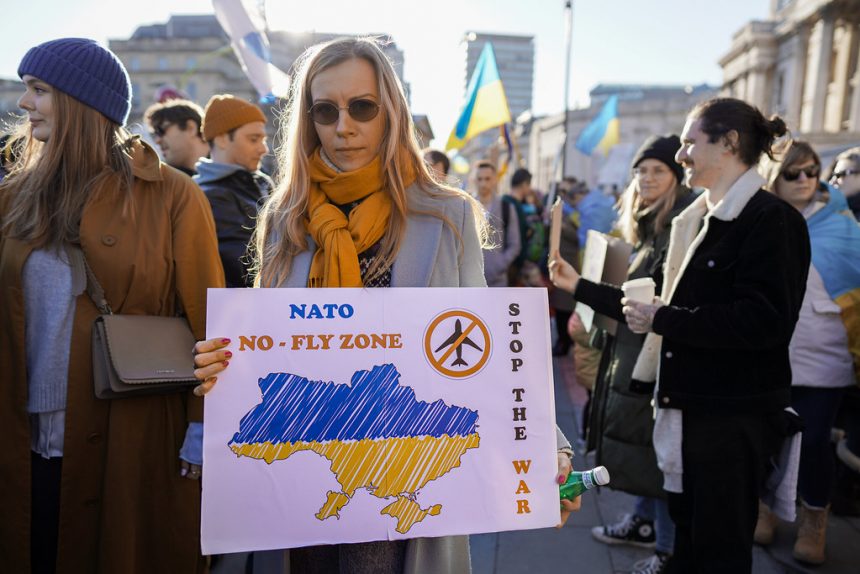China’s envoy to Ukraine emphasizes necessity of halting arms supply to restore peace, urges Kyiv’s allies.
In a bid to achieve lasting peace, China’s envoy for Eurasian affairs, Li Hui, has appealed to Ukraine’s allies to halt the shipment of weapons to Kyiv and instead focus on diplomatic negotiations. Li’s plea comes at a time when Washington and numerous European nations are increasing the supply of missiles, tanks, and other armaments to Ukrainian forces, as they strive to reclaim territory occupied by Russia.
Li addressed reporters in Beijing on Friday, stating, “If we truly desire to end the war, save lives, and attain peace, we must cease sending weapons to the battlefield.” He emphasized that all parties involved should deeply reflect on the painful lessons that have led to the current state of the Ukraine crisis.
Acknowledging the existing challenges in convening talks to end the war, Li acknowledged that both sides have not completely closed the door to peace negotiations and that common ground can still be found. Last month, the Chinese envoy embarked on a tour of European capitals, actively promoting Ukraine peace talks. During his 12-day journey to Kyiv, Warsaw, Paris, Berlin, Brussels, and Moscow, Li sought to establish a basis for a future political settlement.

Li warned of the continued high risk of escalation in the Russia-Ukraine war, urging all parties to take tangible measures to de-escalate the situation and ensure the safety of nuclear facilities. While China maintains its neutral stance and aims to serve as a mediator, it has provided political support to Moscow. In February, Beijing presented a proposed peace plan, but Ukraine’s allies insisted on the withdrawal of Russian forces as a prerequisite.
Despite criticism from some quarters, Beijing has refrained from condemning the invasion, leveraging its status as one of the five permanent members of the United Nations Security Council to deflect diplomatic attacks on Russia.
Supplying weapons to Ukraine
As the largest weapons provider to Ukraine, the United States has contributed approximately $37 billion in military aid since the invasion took place last year. The majority of this assistance has come in the form of weapons systems, millions of munitions and ammunition rounds, as well as a wide range of trucks, sensors, radars, and other equipment drawn from Pentagon stockpiles and swiftly dispatched to Ukraine.
In response to Ukrainian President Volodymyr Zelenskyy’s appeal for increased weaponry, European nations have also escalated their military aid to Kyiv. Last month, the United Kingdom pledged additional arms to support Ukraine’s fight against Russia, including hundreds of air defense missiles and “long-range attack drones.”
French President Emmanuel Macron committed to supplying dozens of light tanks, armored vehicles, and additional air defense systems to Ukraine. Germany, despite its initial reservations regarding the provision of lethal weapons, has emerged as one of Ukraine’s primary arms suppliers. It has provided Leopard 1 and 2 battle tanks, as well as the sophisticated IRIS-T SLM air defense system.

Analysis of the news
The news article focuses on the call for a cessation of arms shipments and the initiation of diplomatic negotiations as a means to resolve the ongoing conflict between Russia and Ukraine. The article highlights the appeal made by China’s envoy for Eurasian affairs, Li Hui, who emphasizes the need for Ukraine’s allies to halt the supply of weapons to Kyiv and shift their focus towards peaceful dialogue.
The article emphasizes that various Western countries, including the United States and many European nations, have been increasing the provision of weapons and military aid to Ukraine in its efforts to reclaim territory occupied by Russia. However, Li Hui argues that sending more weapons to the battlefield will not contribute to ending the war but rather escalate the situation. He urges all parties involved to reflect upon the current state of the Ukraine crisis and explore alternative paths towards peace.
Li Hui acknowledges the existing challenges in convening peace talks but highlights that both sides have not completely shut the door on negotiations. The article mentions Li’s tour of European capitals, where he sought to promote Ukraine peace talks and find common ground for a future political settlement. Despite the difficulties, Li asserts that there are points of consensus and that the two sides can still engage in dialogue.
It highlights China’s neutral stance in the conflict, with Beijing expressing its willingness to serve as a mediator. However, it is noted that China has provided political support to Russia while refraining from criticizing the invasion. Beijing’s proposed peace plan, released earlier, has faced resistance from Ukraine’s allies, who demand the withdrawal of Russian forces as a precondition.
It underscores the call for a halt in weapons shipments and the initiation of peace talks to resolve the Russia-Ukraine war. It highlights China’s envoy’s efforts to pave the way for negotiations and emphasizes the need for all parties involved to reflect on the consequences of the conflict. However, it also acknowledges the challenges and differing positions among the involved countries, signaling the complex nature of finding a resolution to the ongoing conflict.
SOURCE: AL JAZEERA AND NEWS AGENCIES


